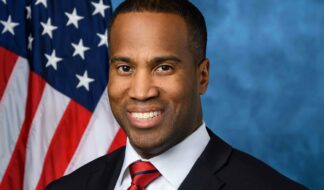
With the passing of equal rights titans Benjamin Hooks, Dorothy Height and others across the country and locally, my thoughts once again have been on struggle of old vs. new, and new leadership vs. seasoned activists.
You see this going on everywhere – particularly in politics, where the old guard is having a really hard time working with new leadership. This is especially true at a national level between a senate and house still, for the most part dominated by white men of our fathers' generation and older and the new upcoming leadership which includes women, youth, gays and people of color – most notably President Barack Obama.
But what about our elders or, as my friend Penny Gardner describes herself and others, our seasoned activists? Must progress come at the expense of the historical and experiential knowledge of these seasoned activists?
I am one of the first to say we must develop and nurture future leaders. Yes, they will stumble and make mistakes, but if they never take the helm, how will they lead when the time comes or is thrust upon them unexpectedly?
As a result we find the same people on every board, every committee and in leadership positions. Then there are the periodic purges when, fed up with the lack of results, we cast out the old and bring in new folks and the learning curve begins again. And for a while the new folks are held under intense scrutiny, compared to the past leaders, and our community continues to languish at the same point with little or no change. The reality is that in life and movement, new leadership develops by building on the accomplishments of the past – it doesn't just happen.
In the civil rights struggle we stand on the shoulders of Martin Luther King Jr., Benjamin Hooks, Dorothy Height, Julian Bond, John Lewis and others. In our struggle for LGBT rights we stand on the shoulders of Bayard Rustin, Harvey Milk and Barney Frank, Stonewall Rebels, Elizabeth Birch and others.
We don't have to just look nationally for examples. We had our own local (s)heroes like Ruth Ellis, Barbara Murray, Jeff Montgomery, Jan Stevenson, Penny Gardner and many more, both living and deceased, that opened doors so the rest of us could live more openly.
It's not just here in Michigan. In a session at Creating Change this year, limited to 25 participants talking about leadership and taking action, this theme came up again and again. We all agreed that we needed new faces from different backgrounds, abilities, cultures and ages. We came up with many innovative ideas on how to attract, retain and develop this new base, but for the most part the role of the seasoned activist was limited to mentoring.
During the afternoon session one participant who was over 65 asked the question "What about me? What about folks from my generation? I'm not ready to sit in the rocking chair passing on my sage wisdom to the newcomers." Once she had broken the ice, others chimed in expressing their concerns not just for themselves but for the movement. "I don't want to hold on forever. I am happy to move on to new things," she continued, "but don't write off my history and experience just because we haven't achieved full equality yet."
In Michigan, many of the old familiar faces are no longer at the table and fresh, new rising stars have emerged. Will new faces at the table pass strong anti-bullying legislation, protections in the workplace, LGBT inclusion in hate crimes legislation, repeal the ban on gay marriage and make Michigan a more welcoming and affirming state for the LGBT community?
If you believe this, please pass around that bottle you've been drinking from so we can all put on our rose colored glasses and sing Kumbaya.
I am a strong advocate of an intergenerational approach to succession planning. I have seen it work but it takes commitment, perseverance and vision – most of all vision.
In the 1990s my friend, mentor, confidant and hero James Boggs asked a group of us – young, old black white, Latino, Middle Eastern activists from all walks of life – "What can we be that our children might see?" The resulting conversations and community visioning led to Detroit Summer.
Initially it was the usual suspects sitting at the table, but each year new faces were added and integrated into the leadership process. They came with their new ideas, language, technology and we all grew. Our vision expanded with clear benchmarks showing we were making a difference.
Today some of those early participants, who were 16 or 17 at the time, have gone on to lead in the community. The latest benchmark is that as a result of a presentation developed by DS alumni with community activists, the U.S. Social Forum is coming to Detroit in June. The agenda includes everyone – LGBT activists, immigration advocates, HIV/AIDS activists – sharing with people from around the country hoping to develop a vision of equality and justice for the nation.
And those seasoned activists? Well, suffice it to say no one is sitting at home in a rocking chair playing Yatzi. They are doing what they have always done: breaking new ground.
Michigan's LGBT community is at a new day. Many of the familiar faces are no longer around. New stars have emerged. Organizations have merged. Openly gay politicians are running and getting elected. Missions and visions have expanded. While our LGBT landscape has changed, our lives in the state of Michigan have stayed the same and, in many ways, are in even greater peril.
The true solution for progress and building our community isn't in the future or the past. We need a mobius transformation to our strategies for attaining equality and justice.
Martin Luther King Jr. said, "Change does not roll in on the wheels of inevitability, but comes through continuous struggle. And so we must straighten our backs and work for our freedom." It might mean in a new role, in new areas, or facing new challenges, but the hour is late, the time is now. We don't need to reinvent the wheel, just continue the circle.










